piwheels stats 2021Q1
Posted by Ben NuttallIn the period of January – March 2021, 9,262,754 packages were downloaded from piwheels, bringing the total to 40,096,797. This has saved 46 years in the period, and 487 years in total! There were 59,141,950 pip searches, 722,140 project page hits, 399,097 web page hits and 84,621 project JSON downloads in the period.
Each month was subsequently record-breaking. March had the highest number of downloads (ever) with 1,850,781, more than double the record set in the previous quarter:
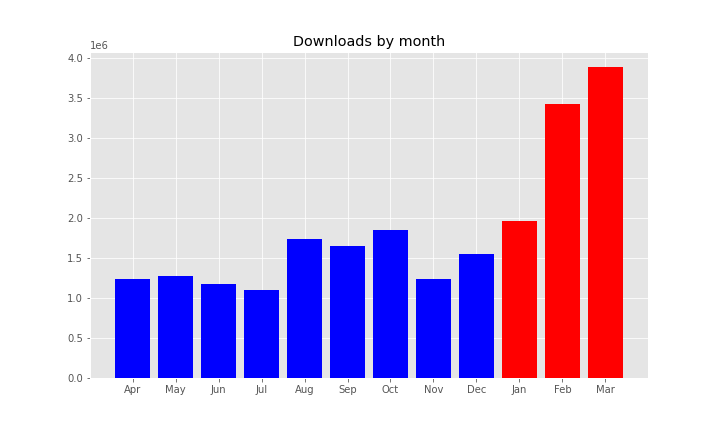
We experienced a one-day spike in the previous quarter surpassing 100k downloads in a single day for the first time. 100k was surpassed 54 out of 90 days this quarter, and all but 3 days following 3 February. The new daily record up to the end of the period is now 168,570 on 24 February.
The latest version of pip, 21.x, now seems to prefer the “extra index” (i.e. piwheels) to the “index” (i.e. PyPI), so now we’re seeing a significant increase in downloads due to many pure Python wheels now being served from piwheels which previously would have been served by PyPI.
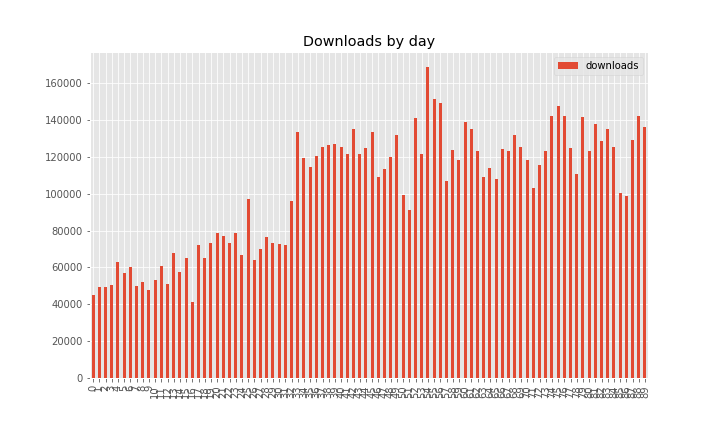
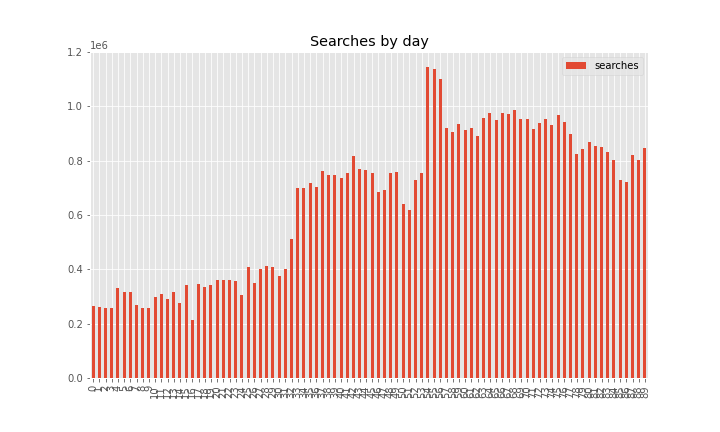
Downloads saved around between 10 and 20 years per month. It seems this is falling, presumably due to more downloads coming from faster platforms (Pi 3/4 vs 1/Zero).
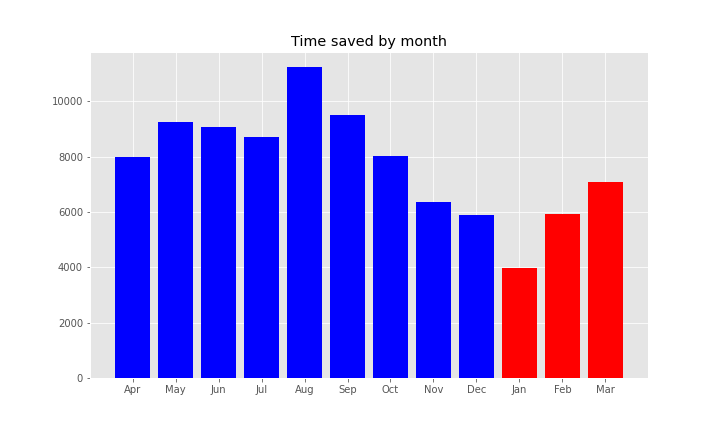
The top 10 downloads were:
- requests (183,869)
- numpy (169,759)
- chardet (152,524)
- setuptools (139,034)
- idna (119,761)
- urllib3 (115,392)
- pip (108,285)
- certifi (107,014)
- typing-extensions (102,449)
- h11 (102,242)
The top 10 pip searches were:
- pip (8,010,081)
- wheel (5,111,590)
- setuptools (2,735,718)
- pyrogram (972,037)
- aiodns (957,426)
- aiohttp (943,986)
- six (764,481)
- requests (677,639)
- future (637,936)
- distro (524,132)
The top 10 project page hits were:
- opencv-python (1,189)
- opencv-contrib-python (1,172)
- numpy (1,161)
- scipy (838)
- tensorflow (796)
- cryptography (588)
- pillow (517)
- pip (451)
- qhub-ops (441)
- grpcio (410)
The top 10 project JSON downloads were:
- numpy (188)
- uvloop (126)
- scipy (78)
- opencv-python (51)
- tensorflow (45)
- cryptography (36)
- cffi (33)
- scikit-image (32)
- urllib3 (28)
- pycparser (27)
The vast majority of JSON downloads are from browsers (or bots) and only a small proportion seem to be from wget and requests. See the JSON API page for more information on using this API.
Platforms
Linux makes up over 99.9% of all searches so I’ve discounted the rest. Raspbian / Raspberry Pi OS and Debian are now combined (due to Raspberry Pi OS identifying itself as Debian). This group obviously dominates with nearly 98%. Ubuntu remains in third place with under 2%, although we don’t officially support it.
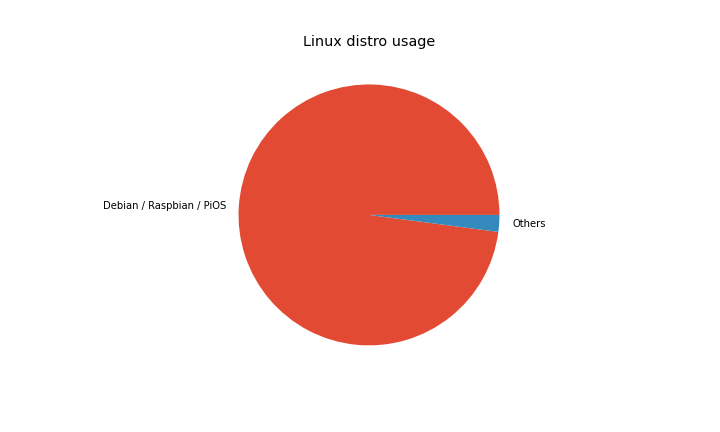
Buster accounts for nearly 93% of Raspbian/Debian usage, Stretch accounts for just 7% and there’s practically no Jessie usage:
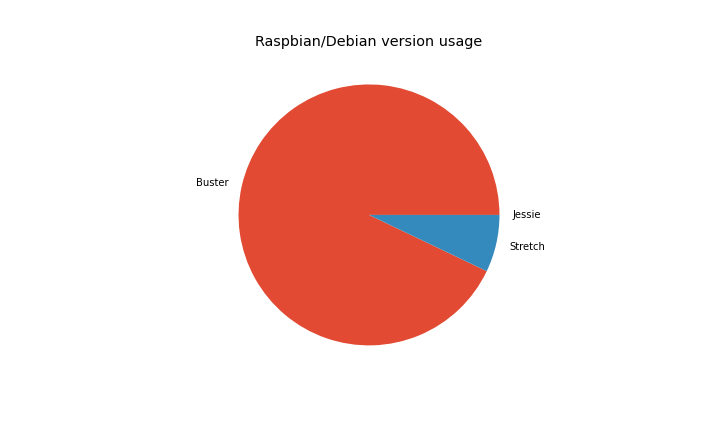
armv7l (Pi 2/3/4 platform) is still a majority architecture with 92% of searches from Arm devices, with armv6l (Pi 1/Zero) taking just 4%. Raspberry Pi released a beta of a 64-bit version of the official OS last year, which was starting to grow in usage but has dropped slightly. It’s currently at 3.8%, and those users are currently not served by piwheels as we don’t yet build aarch64 platform wheels. We actually get more hits from x86_64 users than either armv6l or aarch64.
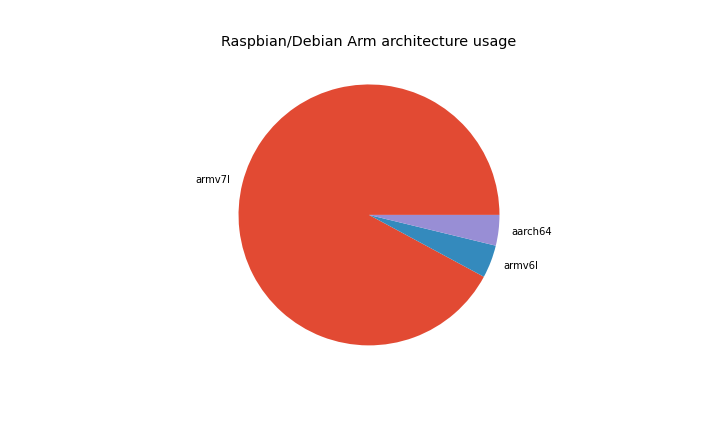
Python 3 has a supermajority of usage, and 3.7 (the version provided by the current stable distro) has the highest share with 68%. Python 2.7 comes second with 22%, followed by 3.8 and 3.9 – both now overtaken 3.5 (from oldstable). Fortunately, Python 3.4 (in Jessie, now EOL) has an insignificant usage, but it’s a shame there’s still so much Python 2 usage. Generally most users are using the Python provided by the current Debian stable – which is due to change this summer, so we’ll start to see a rise in Python 3.9 usage which could become the leader by the end of the year.
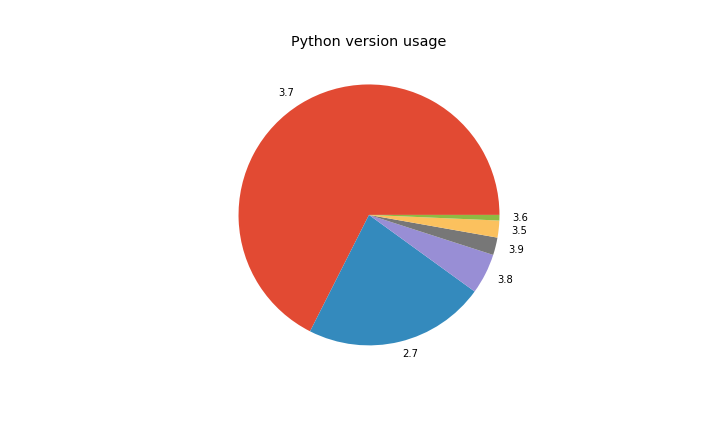
We’re also logging pip and setuptools versions:
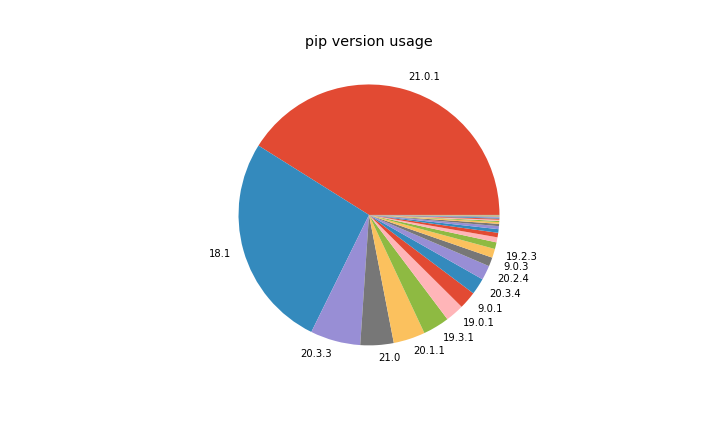
Note that 18.1 is pre-installed in Buster, and 9.0.1 is pre-installed in Stretch. 20.1.1 is a recently released version, so likely the most common for people who update their pip.
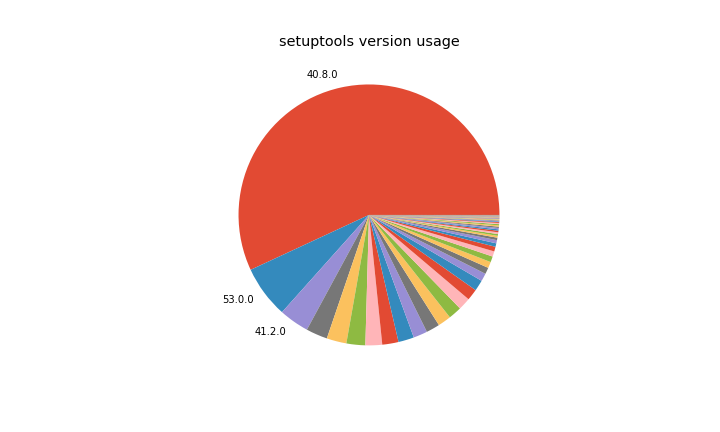
Similarly, setuptools 40.8.0 is what’s pre-installed in Buster, but the version of pip in Stretch doesn’t send the setuptools version (33.1.1) in the user agent like it does in newer versions.
One new set of stats I’ve looked at in detail is bandwidth. We see about 5TB of bandwidth each month, peaking at 6.4TB in March. The breakdown of bandwidth in the period is 84% pip downloads, 2% pip searches, a tiny amount (0.05%) of website traffic (project pages, JSON, etc) and the rest (14%) comprising mostly of wheel downloads from browsers (not pip):
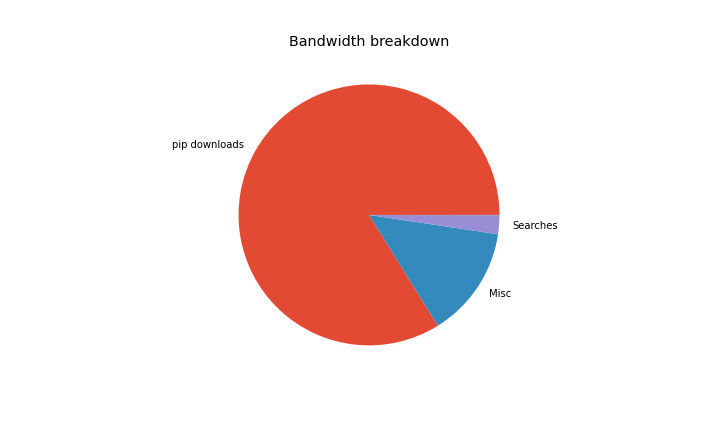
And broken down by month:
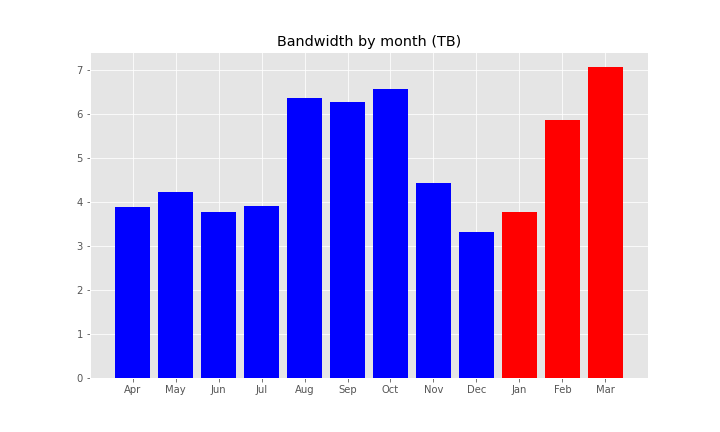
Check out the source of this post in a Jupyter notebook: github.com/piwheels/stats/blob/master/2021q1.ipynb